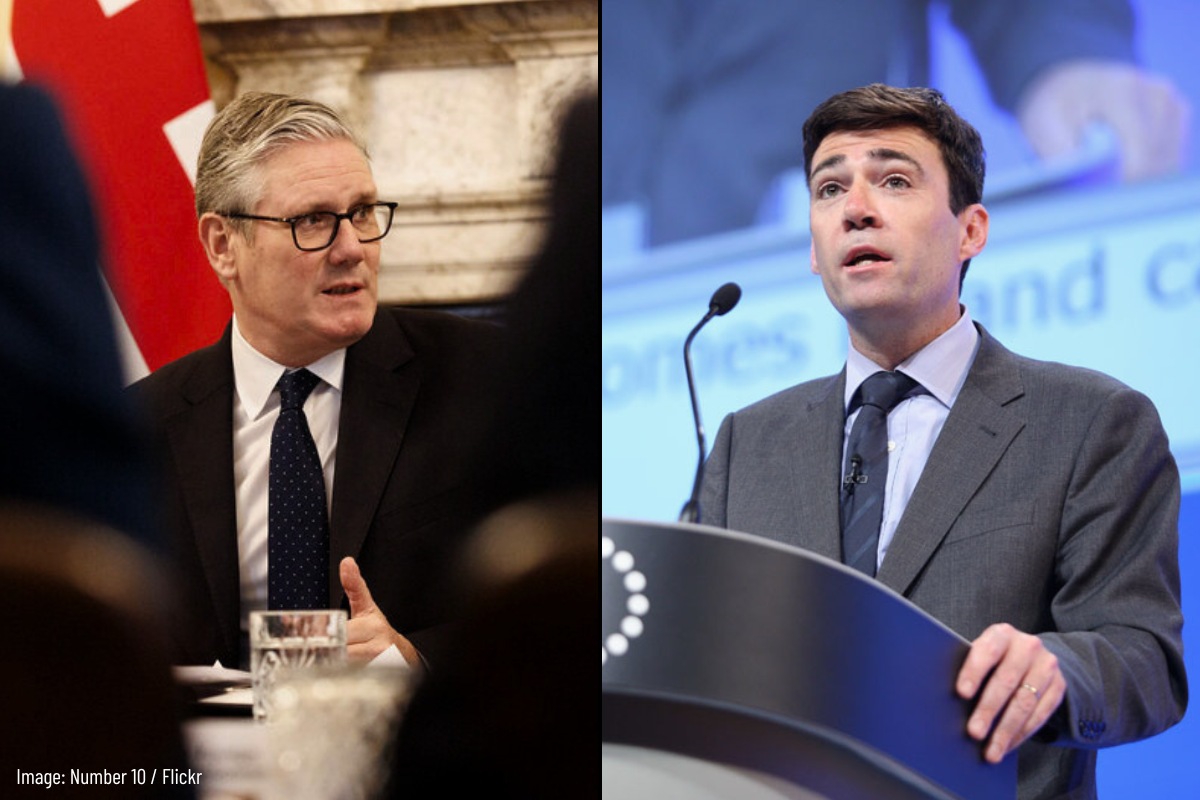As the general election approaches, the working class face a bleak future. The Tory party promises to “finish the job” through increased austerity. The Labour leaders, meanwhile, want to continue the austerity but in a more “humane“ fashion. A clear alternative to austerity is needed. The leaders of the Left and the labour movement must fight for bold socialist policies.
Working class people face a bleak future. In this election, the Tory party promises to “finish the job” by increased austerity. The Labour leaders, rather than offer a real alternative, want to continue the austerity but in a more “humane“ fashion. Calamity Clegg is prepared to jump into bed with anyone as long as he gets a ministerial post.
However, austerity is still austerity. It means savage cuts in living standards for the overwhelming majority. On this basis, whoever wins, working people will have had little to cheer about.
Cuts, cuts, cuts
We know that the Tory party represents the interests of the rich and privileged. They are the prime defender of capitalism.
The Labour Party, on the other hand, are supposed to represent working people but have now put their faith in the market. Miliband’s attack on “non-doms” certainly got widespread support but this was quickly followed by a commitment to austerity. This explains why there is not much difference in the opinion polls.
Both major parties are fixated about cutting the deficit and balancing the books. Both hide the fact that the deficit was caused by the capitalist crisis and the multi-billion-pound bank bailout.
Various promises have been made to defend this or that but few people believe what the parties are saying. For most, the election campaign, except in Scotland, has been dull and uninspiring.
Many will vote Labour but will hold their noses in the process. Many more will not bother to vote, turned off by the whole business: especially the poor, the young and ethnic minorities. “Who is doing anything for us?” is the usual refrain.
According to a BBC poll, some 45% of women will not vote, despite them experiencing the brunt of the austerity. The Fawcett Society has said 75% of cuts have come out of women’s pockets. So why should they support parties that offer more of the same?
Others, especially the youth, are tending to vote Green or other minor parties, such as the SNP. In 1950, Labour and the Tories got 97% of the vote; today, they will get around 65%, a splintering of the two-party system.
Election of discontent
Despite the colossal discontent, bitterness and anger, there is widespread disillusionment with the main parties. They are seen as part of the rotten Establishment, out of touch with everyday life.
This mood is widespread, even amongst former Tory voters. “They get paid too much, they don’t live in the real world,” says Jackie Caruthers, a public sector worker from Stockton. “I usually vote Conservative, but I’m not sure this time.”
The rise of UKIP is a reflection of this profound disillusionment. While UKIP stands on the right and uses immigration to whip up prejudices, it has gained popularity by its “anti-establishment” stance, picking up support mainly, but not exclusively, from disillusioned Tory supporters.
Rise of the insurgents
In the seven-party leadership debate, the Greens, Plaid Cymru, and the Scottish National Party all challenged the Labour Party from the left. These minor parties promoted themselves as a “progressive alliance” against austerity. Nicola Sturgeon, the leader of the SNP, was seen as the clear winner of that debate, attacking austerity and calling for greater public spending.
In the second debate, a national poll gave her a close second behind Miliband but in Scotland the poll gave her a landslide. Afterwards, people were urging her to stand for Westminster as she would make a great British prime minister!
The Greens have gained enormously in support, becoming the third biggest party in England and Wales by membership. They offer a radical alternative, concentrating on social and class issues, and even promising a “peaceful revolution”.
While these minor parties stand to the left of Labour, they still however attempt to work within the framework of capitalism.
Nevertheless, they certainly strike a chord by offering to end austerity, abolish Trident, renationalise the railways, bring privatised utilities back into public ownership, etc. These are very popular policies, which the Labour Party leaders have turned their backs on.
Reformism without reforms
We support such policies. Our main criticism is that the capitalist system, which is in deep crisis, cannot afford such reforms. In fact, it demands counter-reforms. The cuts are not just ideological as some maintain, but arise from the crisis of capitalism. Social Democratic parties when in power have also carried out austerity.
Only by taking over the commanding heights of the economy and putting an end to capitalism can genuine reforms be guaranteed and sustained. This is especially the case with a new world slump on the horizon and big business strategists fret about the slowdown and the deflation in Europe.
All the factors that triggered the 2008 slump have once again reemerged. The Greek government is facing bankruptcy in May, resulting in a default and an exit from the euro with all the consequences that entails. A new slump would throw the world economy into a Depression, as in the 1930s, meaning still greater hardship and austerity.
So far the greatest shake-up has been in Scotland. The support for the Labour Party has suffered an historic collapse, largely as a result of its alliance with the Tories and Liberals in the No campaign. The main beneficiary has been the SNP, which projects itself as an anti-austerity party. This means that its representation in Westminster could rise from 6 MPs to 50 and even hold the balance of power in a hung parliament.
“I’ve always voted Labour in Westminster elections in the past, but I don’t think they are much different from the Tories these days”, says social care worker Alan Wheatley. “I’m thinking I’ll be voting for the SNP this time.” This sums up the mood of many voters and not only in Scotland either.
Endorsement of austerity
This disillusionment with Labour was intensified following Miliband’s endorsement of austerity. Ed Balls, the shadow chancellor, has already committed himself to stick to Tory spending cuts in the first year and has attacked irresponsible “unfunded” Tory election promises.
The choice according to Ed Miliband is between “real, concrete, fully-funded pledges from Labour or fantasy and unbelievable promises from the Tories.” He added that his policies come “with no additional borrowing.” This attempt by Labour to out-Tory the Tories on austerity only causes dismay and confusion.
Miliband’s promise of a Tory-style “Budget Responsibility Lock” has all the hallmarks as an “Austerity Lock”. He even wanted the Office of Budgetary Responsibility to vet all election manifestos so that they would be “fiscally responsible”.
He is being more fiscally conservative than even Tony Blair, when he says he wants to cut the deficit every year and reduce the national debt. “I am going into an election doing what no other Labour leader has done”, he said, adding “spending is going to fall until the books are balanced. I couldn’t be clearer that we are going to cut the deficit every year, that we are going to have a surplus on the current budget as soon as possible in the next parliament and that we are going to have the national debt falling.”
This “caste-iron” commitment to capitalist austerity was highlighted on the opening page of Labour’s election manifesto and simply reinforces the view that there is little difference in principle between the proposals of Labour and those of the Tories on austerity.
Shamefully, this is where a commitment to capitalism ends up – in a promise to attack working people in order to pay for the capitalist crisis and balance the books.
Coalition?
The Labour leaders have ruled out a coalition with the SNP because the nationalists are regarded as too left wing, demanding such outrageous things as an end to austerity and the scrapping of Trident.
However, Miliband has not ruled out a coalition with the discredited Liberal Democrats. In fact, he has been constantly making overtures to the Lib Dems over the years.
This whole approach has alienated Labour supporters, who have seen the party drift to the right over many years. It has also alienated millions of people looking for fundamental change.
While we cannot rule out the Tories cobbling together another coalition, the most likely outcome, as we go to press in late-April, is a minority Labour government supported outside by the SNP. The bosses will naturally prefer a coalition with the Lib-Dems who are considered more “trustworthy.” We should oppose all capitalist coalitions. The next few weeks will decide what we get.
Tories Out!
This paper has always opposed a Tory government, the direct political representatives of big business. A Labour government is clearly preferable.
However, if a Labour government comes to power, it will be more like those crisis Labour governments of 1924 and 1929-31 than anything we have seen. Pledged to manage capitalism and continue with austerity, such a government will provoke enormous opposition in a population that rejects austerity. With the SNP opposing cuts, Labour will rely on Tory votes to carry out its austerity. Such a scenario could lead to another 1931, where an austerity-led National Government was put together “in the national interest”.
We have consistently said that there is no way out for the working class on the basis of capitalism. The system has reached its limits. The epoch we have entered is one of deep, permanent crisis, as in the inter-war period.
The only way forward is for the working class and the youth of Britain to arm itself with a socialist programme.
Only by taking over the giant monopolies, the banks and insurance companies, under democratic workers’ control and management, can the economy be planned in the interests of the majority and not those of the millionaires.
Only then, can we give everyone a decent job, a living wage, a decent house to live in and a first-class free education for their children. This is the only real alternative to austerity and collapsing living standards, and a society worth fighting for.






